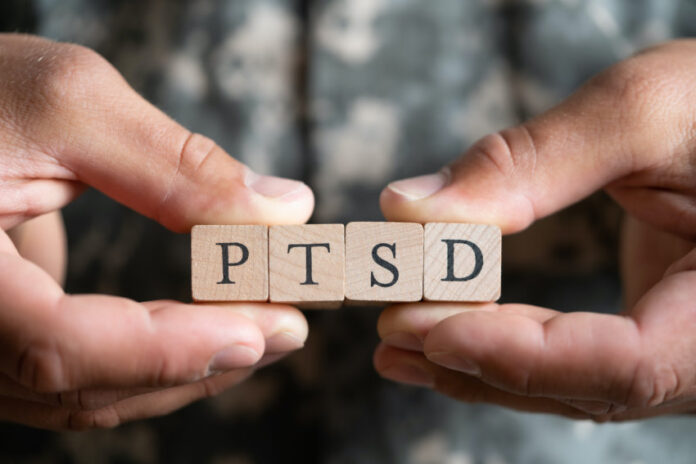It is acknowledged that with the choice to join the military comes rigorous training, the expectation of operational readiness, and the assumption that one will be at their peak physical condition while serving their country. What is not often acknowledged, however, is that these rigid standards — combined with the stress and often trauma associated with serving — can lead to eating disorders among military personnel.
“Our men and women in the military are three times more likely than civilians to suffer from certain eating disorders,” says Heather Baker, LCSW-S, CEDS-S, founder of Prosperity Eating Disorders and Wellness Center. As an LCSW-certified eating disorder expert specializing in comprehensive eating disorder therapy, Baker utilizes an “all foods fit” philosophy in her approach to personalized care for her clients.
The constant pressure to maintain strict body standards coupled with demanding deployments and separation from loved ones can exacerbate mental health challenges that often lead to disordered eating patterns. These unique challenges faced by our nation’s military have led experts and professionals like Baker to advocate for improved support systems for this group. “Seeking help for an eating disorder can be overwhelming, and when one is in the military, it can feel like it is not even an option,” says Baker.

The prevalence of eating disorders in the military
While the exact rates of eating disorders among members of the military are unknown due to associated stigmas and lack of self-reporting, experts do know that people in the service — especially women — run a higher risk of being diagnosed with an eating disorder. A study published by the American Psychological Association showed that nearly 34% of active-duty women scored in the at-risk range for eating disorders, while between 2 and 7% of active-duty men were found to be similarly at-risk.
The prevalence of eating disorders within the military can be attributed to several factors that are unique to military service. “Members of the military have to regularly ‘make weight’ for certain occasions, such as graduations, and have to hit a certain BMI,” Baker explains. “These parameters can lead to disordered eating habits.”
A high level of activity and high-stress situations, from boot camp to combat, also play a significant role in the high level of disordered eating behavior found among members of the military. For example, the US Army abides by strict weight requirements and maximums, setting the maximum weight for both men and women based on height and age.

The standards are rigid, and if a soldier falls outside of those standards within six months after enlisting, they may be forced into the Army Body Composition Program (ABCP) — a mandatory supervised and regulated fitness program for those who do not maintain physical standards.
Appearance is also heavily monitored within the military, and such scrutiny can lead to body dysmorphia or disordered ideas about one’s own appearance. The military wants their soldiers to have a uniform, fit, and lean appearance, which is why they all have similar haircuts, uniform protocols, and strict weight standards. Many members of the military have to undergo regular inspections, where superior officers make sure their appearance, from their weight to the cuffs on their shirts, is up to par.
The mental health struggles of both enlisted soldiers and veterans have been studied and well-documented. It is the combination of the soldier’s predisposition toward depression and other mental health challenges and the rigid standards and expectations of the military that largely contribute to eating disorders.
Seeking help
According to reports from the Government Accountability Office (GAO), the US Department of Defense (DoD) “screens for eating disorders for all applicants entering into the military but does not specifically screen servicemembers for eating disorders after entrance. However, after joining the military, servicemembers receive annual health screenings, and medical personnel may be able to diagnose eating disorders during in-person physical exams.”
The report goes on to state that behavioral health specialists who work with these recruits through the DoD “are trained to notice signs of eating disorders, such as changes in vital signs and emaciated appearance.” However, because eating disorders can severely impact the cardiovascular, neurological, and digestive health among members of the military in particular, it may require more in-depth screening, monitoring, and treatment.
“Seeking treatment for adults with eating disorders poses an added challenge due to their existing responsibilities and commitments,” Baker explains on her Center’s website. “Many have learned to adapt their lives around the disorder, making the idea of seeking inpatient or outpatient treatment appear daunting, if not impossible.”
There is also a stigma that persists around eating disorders, and those in the military may fear seeming weak, out of control, or unable to perform their duties if they seek help. Studies have shown that eating disorders among members of the US military are found at rates comparable to that of the general US population, but may even be found at higher rates due to the percentage of service members who avoid being formally diagnosed.

Enlisted and veteran members of the military need care that is catered to their specialized needs, especially those dealing with co-occurring mental health concerns such as PTSD. “A comprehensive treatment approach needs to target the nutritional, psychological, psychiatric, and emotional needs of the person,” says Baker.
Treatment approaches such as exposure therapy, cognitive processing therapy, intensive outpatient programs, or even in-patient programs for those needing extra support should all be options for military members. It is also essential to offer virtual therapy options for those who may be deployed.
A complex weave of social, psychological, occupational, and physical factors all play into the higher risk factors for eating disorders among military personnel. Military leaders, healthcare providers, and policymakers must recognize these heightened risk factors and create avenues for treatment without stigma or negative repercussions.
By addressing the issue of eating disorders among members of the military, we can support our men and women in uniform and promote the ongoing health and resilience of our armed forces, assuring that they can thrive long after their service is through.






![Calgary’s Hottest Neighborhoods for Luxury Homebuyers [2024]](https://thewashingtonote.com/wp-content/uploads/2024/04/Calgary-324x160.png)



